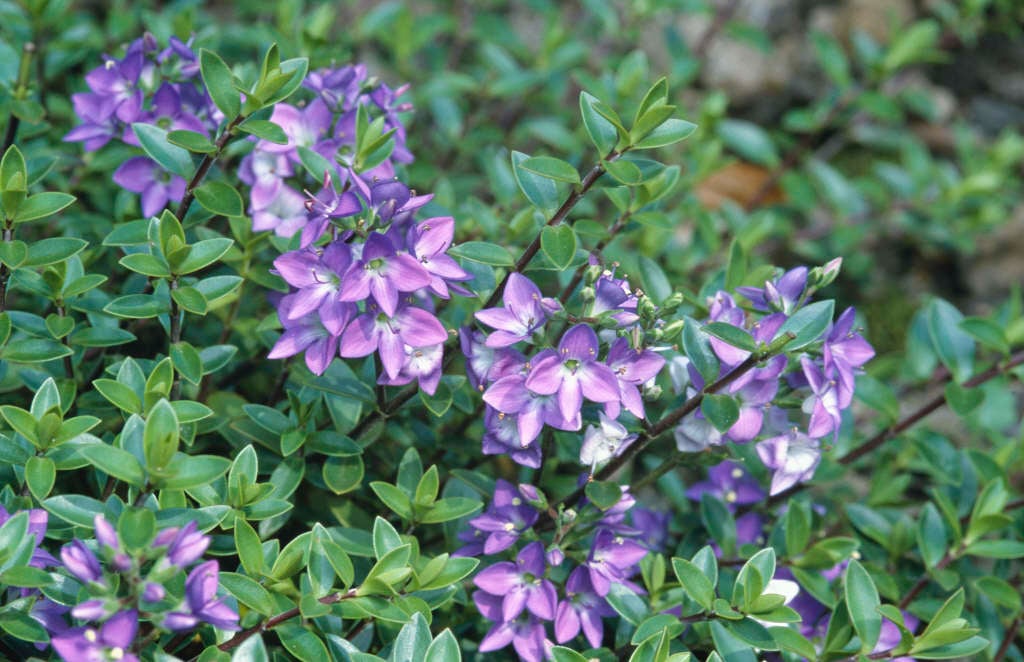Hebe 'Youngii'
hebe 'Youngii'
A spreading dwarf shrub to 20cm tall, with dark stems bearing small dark green leaves and abundant short racemes of white-throated violet-blue flowers in early summer
Synonyms
Veronica 'Carl Teschner'Hebe canterburiensis 'Carl Teschner'
see moreHebe 'Carl Teschner'
Hebe 'Youngii'
Size
Ultimate height
0.1–0.5 metresTime to ultimate height
5–10 yearsUltimate spread
0.1–0.5 metresGrowing conditions
Moisture
Moist but well–drained, Well–drainedpH
Alkaline, NeutralColour & scent
| Stem | Flower | Foliage | Fruit | |
| Spring | Green | |||
|---|---|---|---|---|
| Summer | Blue White | Green | ||
| Autumn | Green | |||
| Winter | Green |
Position
- Full sun
- Partial shade
Aspect
South–facing or North–facing or West–facing or East–facing
Exposure
ShelteredDrought resistance
Yes Hardiness
H4Botanical details
- Family
- Plantaginaceae
- Native to GB / Ireland
- No
- Foliage
- Evergreen
- Habit
- Matforming
- Genus
Veronica can be annuals, perennials or sub-shrubs with paired leaves and small flowers usually in terminal or axillary racemes or spikes
- Name status
Accepted
- Horticultural Group
- This genus has changed from Hebe to Veronica
How to grow
Cultivation
Grows well in poor to moderately fertile soil in sun or partials shade with protection from cold, drying winds. Tolerant of some pollution and can also be grown in a cool glasshouse in a peat-free, loam-based compost with shade from hot sun. See https://www.rhs.org.uk/plants/trials-awards for further information about RHS plant trials and awards
Propagation
Propagate by seed sown in containers in a cold frame as soon as ripe. Cultivars will not come true. Root semi-hardwood cuttings in late summer or autumn with added bottom heat
Suggested planting locations and garden types
- Cottage and informal garden
- City and courtyard gardens
- Coastal
- Patio and container plants
- Wildlife gardens
- Banks and slopes
- Flower borders and beds
Pruning
Pests
May be susceptible to aphids
Diseases
May be susceptible to downy mildews, fungal leaf spot, fungal rot, Phytophthora and sometimes honey fungus
Get involved
The Royal Horticultural Society is the UK’s leading gardening charity. We aim to enrich everyone’s life through plants, and make the UK a greener and more beautiful place.
